Starting over in Afghanistan
Pressured to leave Pakistan, more than 600,000 refugees have already repatriated to Afghanistan, which remains in the grip of violence and poverty. Meet some of the returning Afghans. Photos by Andrew Quilty.
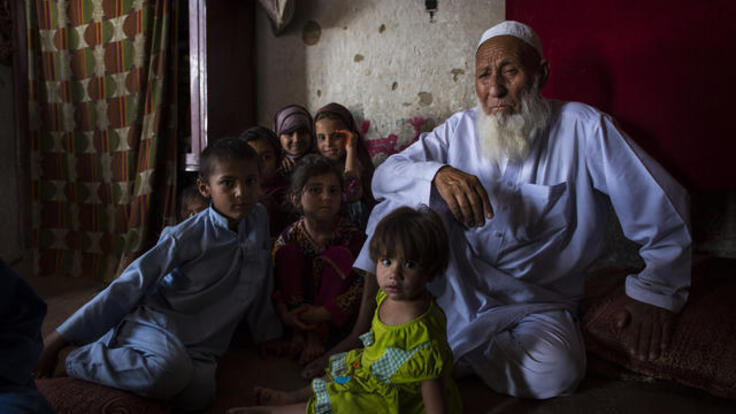
These children stay with relatives as their father (not pictured) looks for work as a day laborer. Their father was born in Pakistan but harassment and uncertain legal status forced his family to leave their homes in a camp for Afghan refugees. The IRC is supporting them with emergency cash.
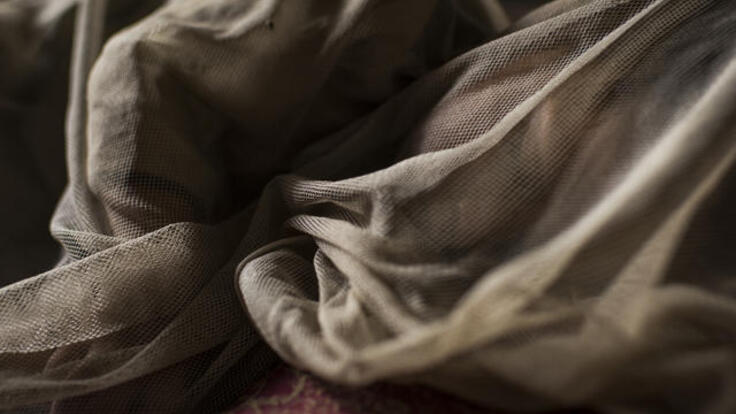
A two-year-old sleeps under a mosquito net in the heat of the day. His family, undocumented Afghan refugees, returned nine months ago after pressure from Pakistani authorities. When they arrived the IRC provided them with a tent and 17,000 Afghanis (£190) in cash they now use to pay rent.
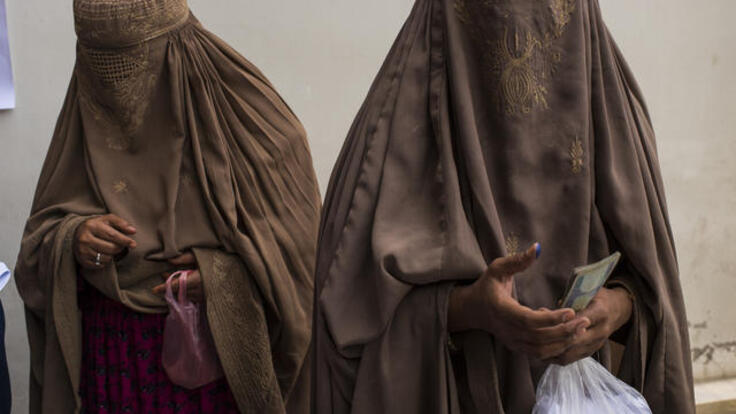
Women receive cash relief for their families at the Afghan government's Directorate for Refugees and Repatriation office. The IRC distributes the cash, along with emergency supplies such as light blankets and water purification tablets, to returning families in need.
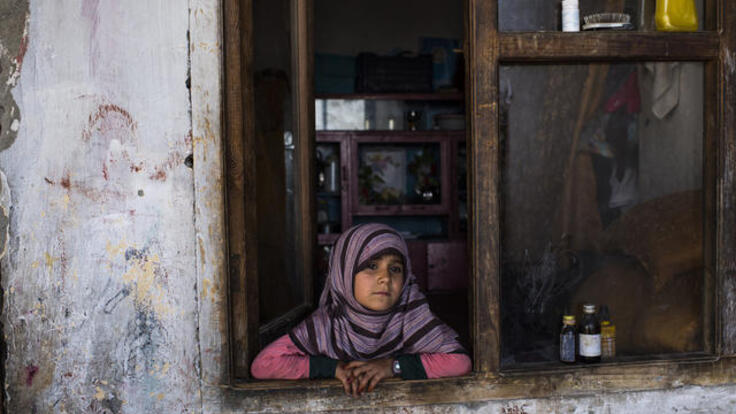
Many of the refugees who are returning to Afghanistan have lived in Pakistan for decades, and will need support from the government and aid groups as they try to find shelter, jobs and schools. Those born in Pakistan will be caught between cultures, unsure of whether to identify with their ancestry or the land where they were raised.
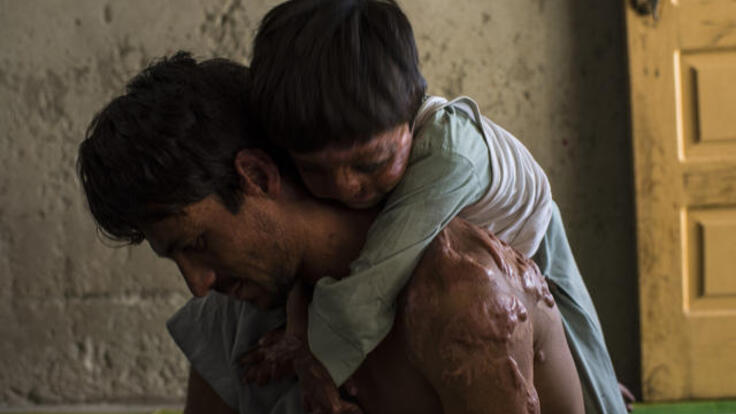
A year ago, while this family were still in Pakistan, a propane cylinder used for cooking exploded in their home, severely burning them. The IRC has paid the family's rent for three months and provided cash grants, which have mostly gone toward treatment for the children's burns.
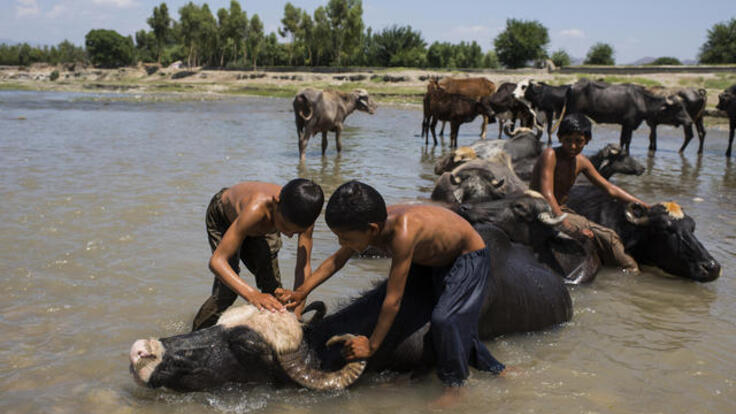
Boys wash water buffalo. Nearby, a wall is being built with funding from the IRC to protect a water canal from the river. The IRC has been supporting the Afghan people for nearly four decades as they endure displacement and poverty.
Get the latest news about the IRC's innovative programmes, compelling stories about our clients and how you can make a difference. Subscribe